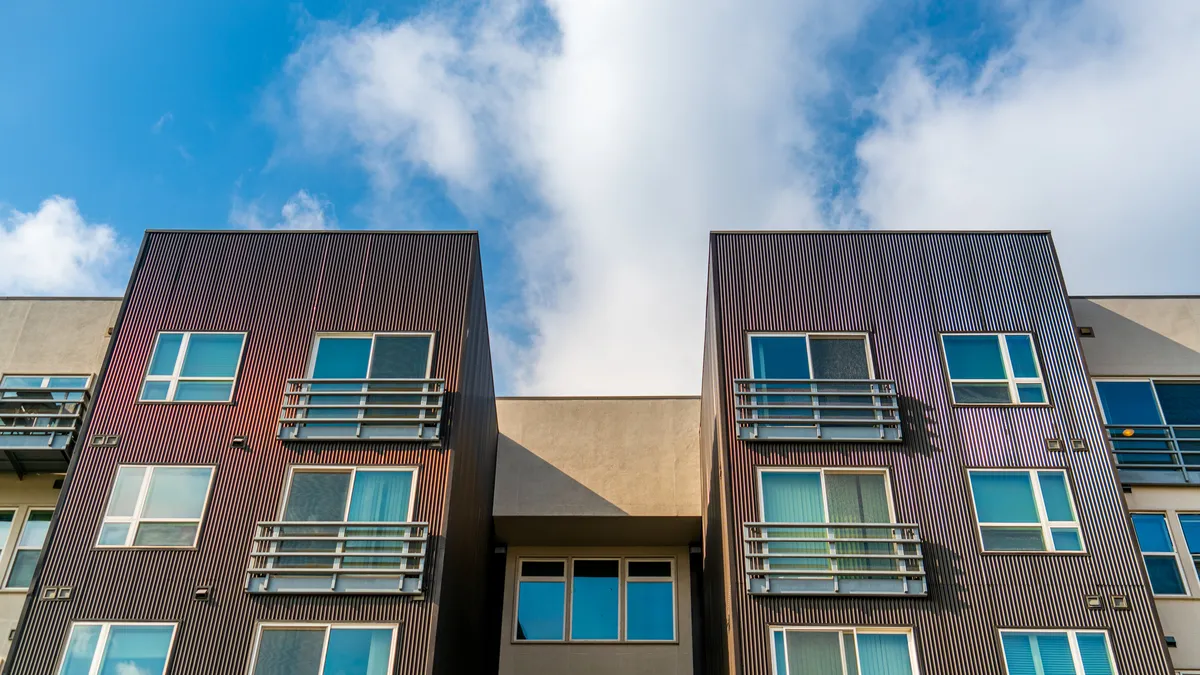A slower-than-expected third quarter is forcing Houston-based REIT Camden to alter its outlook for the rest of 2023.
“We had planned for a more normal fourth quarter, but that didn’t happen,” CEO Ric Campo said on the REIT’s Q3 earnings call. “As a result, we have revised our fourth quarter full-year guidance to reflect weaker new lease growth, lower occupancy and higher bad debts than we expected even in the summer.”
Part of the problem is developers offering large concessions on new properties in Camden’s markets. But that’s not the only issue. In many cases, the company still isn’t collecting rent from people occupying its apartments.
“We’re still not back to normal customer behavior, where they actually pay their rent and, if they don’t, they move out,” he said. “We have high cancelations due to identity theft and fraud, elevated skips and lease breaks.”
Still, despite these challenges, Camden should still see revenue growth above 5%, which is something company executives would “cheer” for in a normal year, according to Campo. Here are three other takeaways from the REIT’s call and earnings report.
Fundamentals soften
Like its Sun Belt competitors, Camden noted a challenging environment for new leases in Q3, as those rents only grew 0.8% for the REIT. Renewals rose 5.9%, which gave the company a 3.4% blended growth rate.
Camden President Keith Oden said only about 16% of Camden’s portfolio is facing new deliveries. Still, that supply is enough to drag down new lease rents. “We’ve been dealing with supply for almost nine months now,” he said. “It’s going to continue for at least through the end of 2024 for sure, and that’s just something we’re going to have to deal with.”
Camden’s gross turnover rates were up 200 basis points due to skips and lease breaks, but net turnover was down 200 basis points year over year in Q3. “Move-outs to purchase homes accounted for just over 10% of our total move-outs during the quarter, which is near the lowest level we’ve seen over the past 30 years,” Oden said.
At the end of Q3, Camden had occupancy at 95.6%. But in October, that number fell to 94.9% as the company had more people break their leases than expected. The most challenging markets were Atlanta; Austin, Texas; and Charlotte, North Carolina. “Those would be the big three in terms of a compounding of both supply that we did anticipate and then continued elevated lease breaks, which we did not anticipate,” Oden said.
Bad debt rises
Camden expected same-store bad debt to be 100 basis points, but it came in at 140 bps due to a jump in September. It is now anticipating 150 bps of bad debt for both the fourth quarter and full year 2023. Historically, that number has been around 50 bps. “We believe this higher bad debt is primarily consumer behavior-driven and not tied to the financial stress of our residents,” CFO Alex Jessett said.
In the first two quarters of 2023, Camden made progress in bringing delinquencies, elevated levels of skips and lease breaks down. Then they all jumped in Q3.
“That was completely unexpected,” Oden said. “The way that flows through in our portfolio is skips and lease breaks are in the same category of short-term lease terminations and they’re really hard to anticipate. You have no idea who’s going to skip or when or when they’re going to move out.”
When a renter moves out in the middle of the night, a company hasn’t had a chance to pre-lease an apartment and the unit is usually in subpar shape. “So not only do you not get notice, but it takes you longer to turn a unit because it’s been probably maybe a little bit more harshly used,” Oden said. “So the days to turn an apartment that is in that category of short-term lease break are just elongated.”
Capital allocation decisions
Camden only sold one asset in 2023. With its stock trading at an implied cap rate of 7.5%, it may consider selling more properties and buying its stock. “We were aggressive buyers of the stock when the stock was down substantially for a long period of time,” Campo said. “And if we have the opportunity to do it, we probably will.”
BY THE NUMBERS
| Category | Q3 | YOY Change |
| Property revenue | $318.4 million | 4.1% |
| Net operating income | $206.4 million | 3.5% |
| Operating expenses | $112 million | 5.3% |
| Funds from operations | $1.73 | 1.8% |
| Occupancy rate | 95.6% | 20 bps |
SOURCE: Camden
Overall, apartment deals are still trading at 5.25% to 5.5% cap rates, showing values haven’t moved a lot, according to Campo. As the bid-ask spread narrows, there is money waiting to make deals.
“There is a big wall of capital that continues to be out there waiting for some more clarity on what is the long-term 10-year going to look like,” Campo said.
Although there is distress in the marketplace, it is mainly happening at the bottom of the market. “The deals that are blowing up today — and there are plenty of deals blowing up today — are really C-minus transactions that were overleveraged,” Campo said.
For Camden, that won’t present any acquisition opportunities. “Those are not our type of properties,” Campo said. “And so there is really no stress in the investment-grade market today, and we’ll see if that happens in the future. But right now, there’s just no opportunity there.”
Click here to sign up to receive multifamily and apartment news like this article in your inbox every weekday.







































